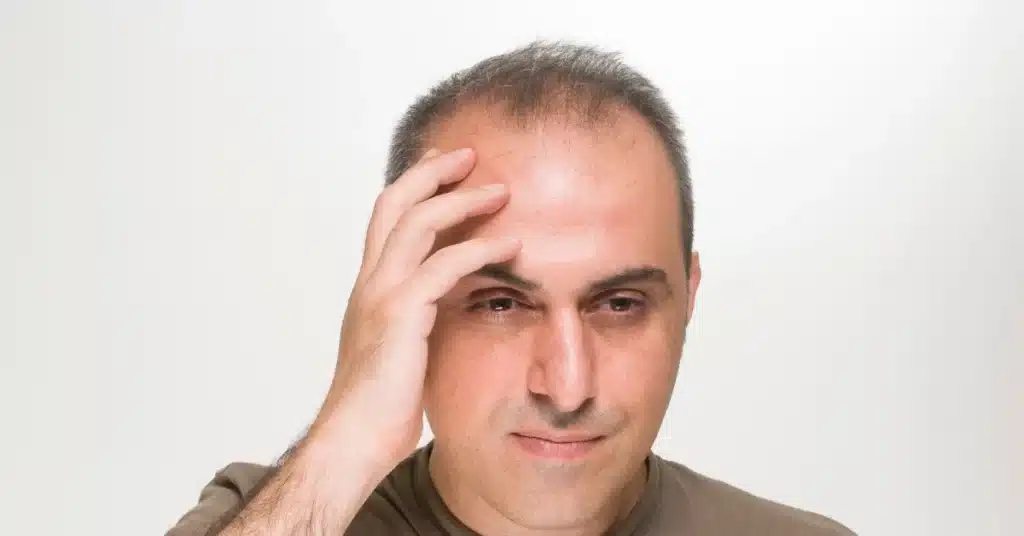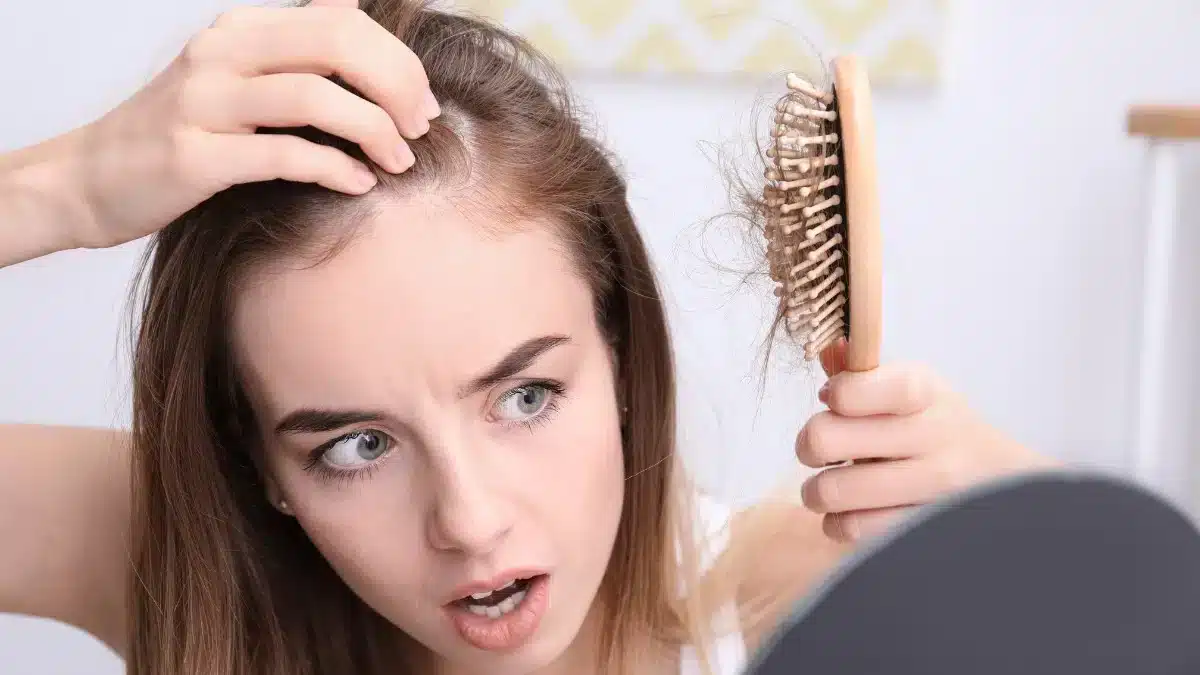The Surprising Link Between Stress and Hair Loss: What You Need to Know
Stress is any emotional, physical, or psychological strain on our well-being which can affect us in various ways.
One lesser-known impact of stress is its connection to hair loss.
Researchers have found that stress hormones can potentially impair hair follicles, leading to hair loss.
In this article, we aim to understand the link between stress and hair loss and learn the available management options as well.
Basics of stress and hair loss
Before diving into the connection between stress and hair loss, let’s understand how hair grows.
Your hair does not grow continuously; instead, it goes through a cycle with four main phases:
- First, the Anagen phase, when the hair grows its full length
- Second, the Catagen phase, when the old hair detaches from your hair follicle
- Third, the Telogen phase (resting phase), when new hair starts to grow, replacing the old one
- Fourth, the Exogen phase, when the old hair falls and the new hair grows
When we experience stress, whether it’s due to work pressures, personal issues, or health concerns, our bodies release stress hormones, primarily Cortisol.
Elevated Cortisol levels can disrupt the natural hair growth cycle in several ways:
- Shortened anagen phase
- Miniaturization of hair follicles
- Reduced blood flow
- Increased inflammation
Types of hair loss due to stress

There are three forms of hair loss which are primarily induced due to stress:
Telogen Effluvium
Telogen Effluvium is one prominent type of hair loss.
Conditions like trauma or stress cause hair follicles to enter a resting phase.
The hair follicles then begin to fall out while washing or combing for several months.
However, this condition is temporary, and the hair tends to grow back after the underlying cause is resolved.
Trichotillomania
Also known as a hair-pulling disorder, Trichotillomania is a psychological condition that urges hair pulling from the scalp, eyebrows, or other body parts when under extreme stress or anxiety.
Individuals can also adapt this to deal with negative emotions like frustration, loneliness, anxiety, depression, or boredom.
Alopecia Areata
Prolonged stress is a primary reason that causes Alopecia Areata.
This condition leads to bald patches on the scalp.
This autoimmune condition occurs when the body’s immune system attacks the hair follicles.
Managing stress-induced hair loss
Now that the connection between stress and hair loss is clear let’s explore strategies to manage and prevent this distressing condition.
Stress management techniques

- Mindfulness and meditation: Regularly engaging in meditation and mindfulness can help reduce stress by encouraging relaxation and emotional well-being
- Exercise: Regular physical activity releases Endorphins, the body’s natural mood lifters, which can counteract the effects of stress
- Yoga: Yoga combines physical postures, breathing exercises, and meditation to reduce stress and promote relaxation
- Deep breathing: Simple deep breathing exercises can help in calming the nervous system and lower stress levels
- Counseling and therapy: If stress is overwhelming, seeking professional help through therapy or counseling can prove to be valuable tools and coping strategies
Vitamins for stress and hair loss

Several factors influence hair growth and health, including nutrition, genetics, medical conditions, hormones, and stress.
Deficiency in minerals and vitamins may contribute to hair loss.
Vitamin A
Vitamin A helps in growing hair, but if you take too much of it, it may result in the opposite.
Retinol, retinoic acid, retinal, and provitamin A carotenoid comprise a group of a compound that counts under Vitamin A.
Intake of Vitamin A-rich food may help improve hair growth.
These include spinach, leafy greens like kale and broccoli, orange vegetables like pumpkin, carrots, and sweet potatoes, and yellow vegetables like squash.
Vitamin B
Vitamin B plays a huge role in hair growth and is essential for nervous system function and metabolism.
It is no wonder that vitamins B7 (biotin) and B12 are both necessary to strengthen and condition the hair.
Research shows you can balance your daily allowance of B vitamins with a properly balanced diet.
Vitamin B can be found in food items like eggs, fish, meats, nuts, and avocados.
Vitamin C
Vitamin C is required for balancing immunity and may make hair stronger, and a deficiency thereof might cause hair loss.
A powerful antioxidant like vitamin C is necessary for healthy growing hair.
It also helps increase blood circulation throughout your body, including your scalp, which helps to promote hair growth.
Vitamin D
Vitamin D is broken down in the skin by keratinocytes, cells that make keratin.
When there isn’t enough vitamin D in the body, the keratinocytes in hair follicles can not help hair grow.
Hair loss and shedding may result from this.
Conclusion
Stress is a major reason for hair loss, but it is mostly temporary and resolves eventually.
Telogen Effluvium, Trichotillomania, and Alopecia Areata are some forms of hair loss that are triggered by a stress hormone called Cortisol.
Managing stress through exercise and yoga and taking good care of your health can help your hair return to a regular growth rate.
Additionally, including vitamins A, B, C, and D in your diet through food or supplements can help reduce hair fall.
You should consult your doctor if you are still looking for help after practicing these things.
They will help you diagnose the reason for your hair loss. They can also help you with advising the next step for your treatment.
Frequently Asked Questions
WowRx uses only high-quality sources while writing our articles. Please read our content information policy to know more about how we keep our content reliable and trustworthy.






